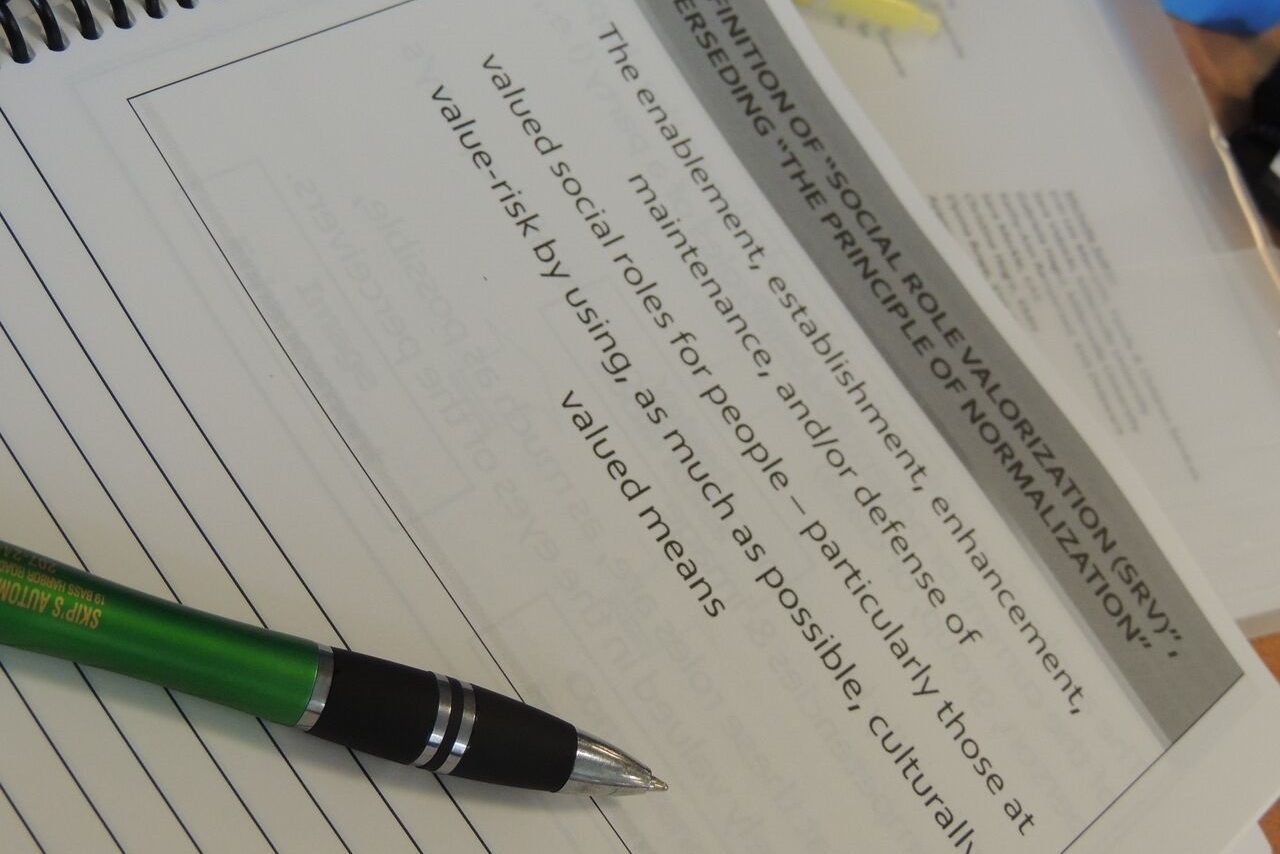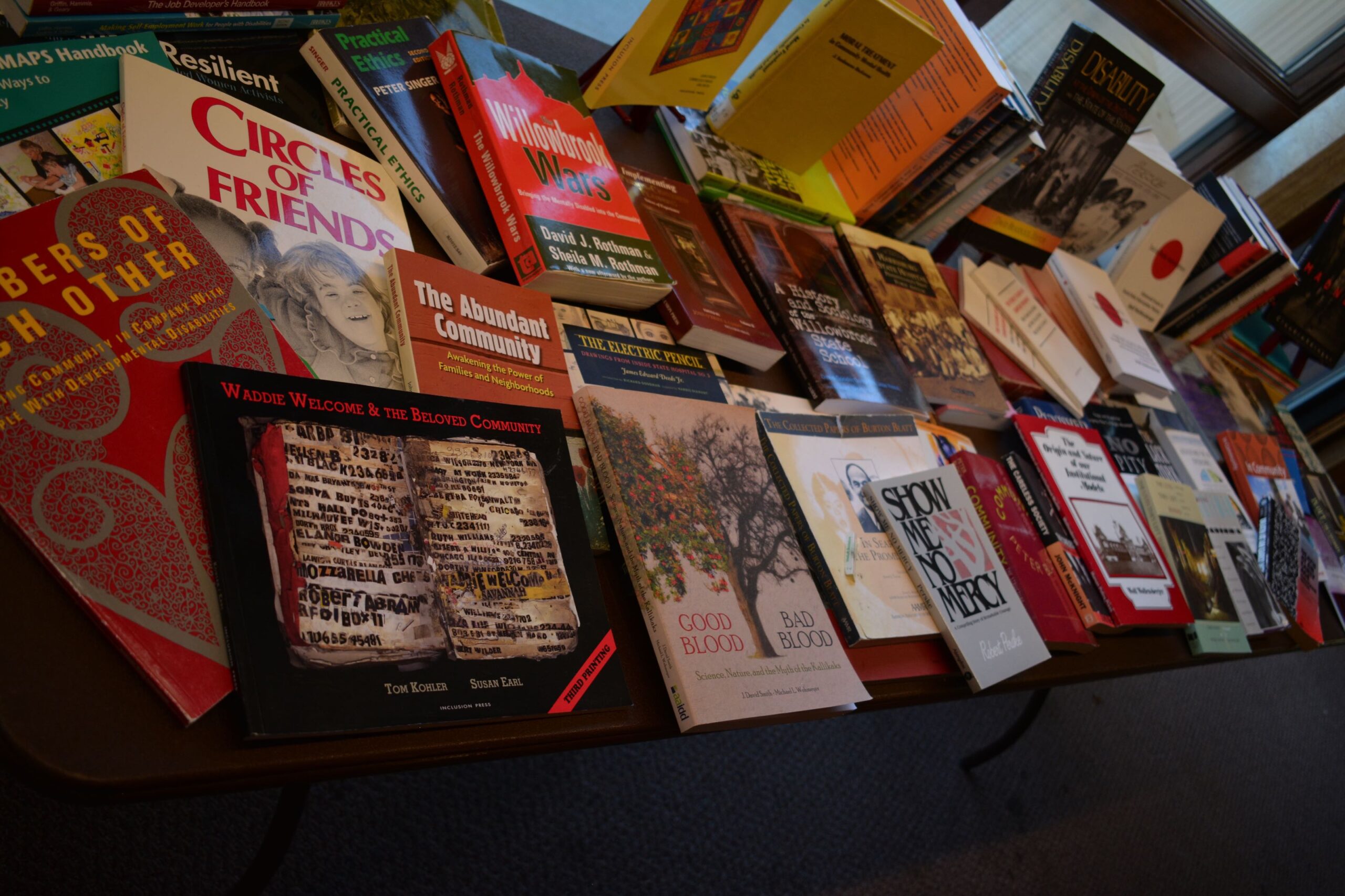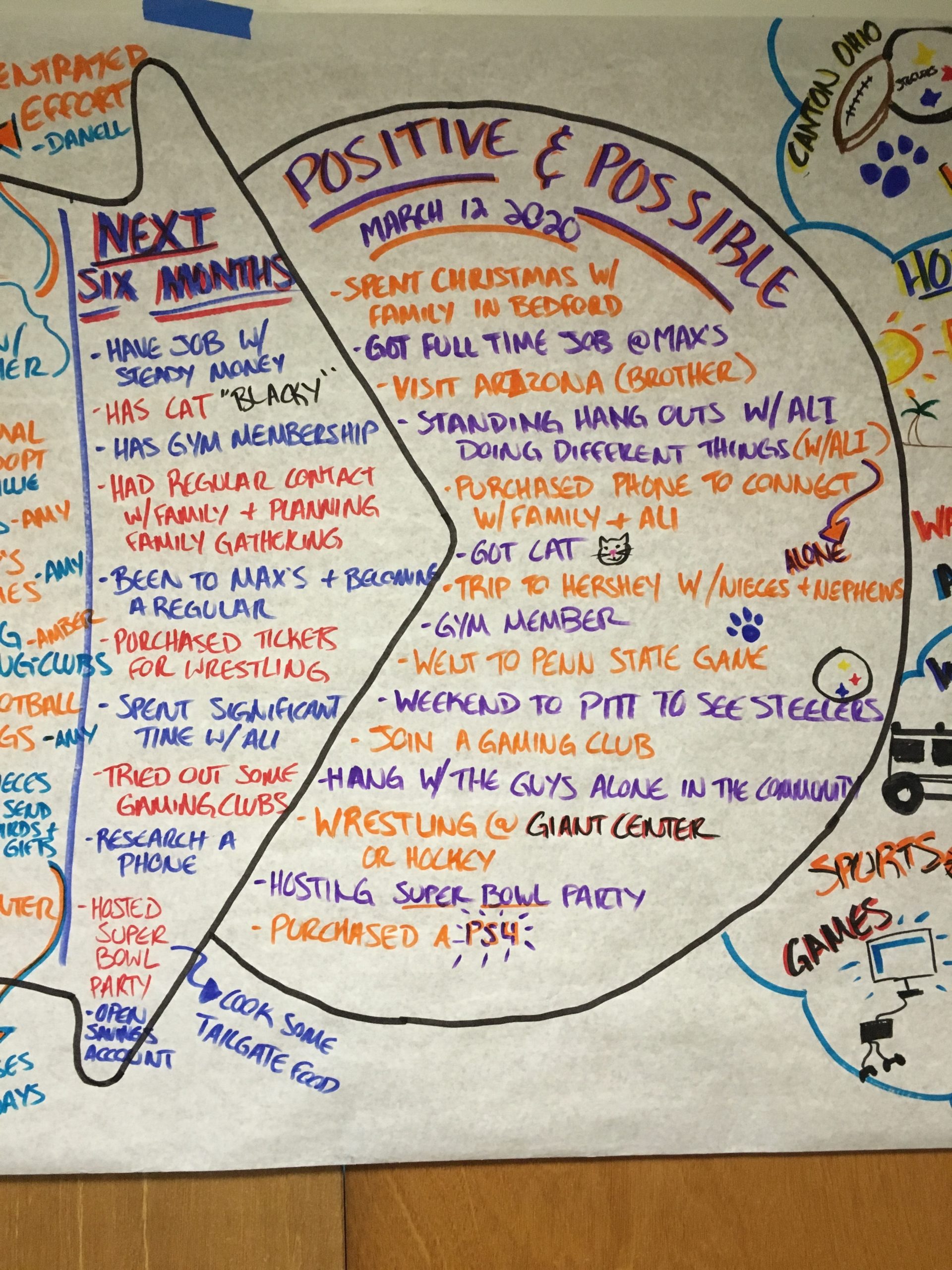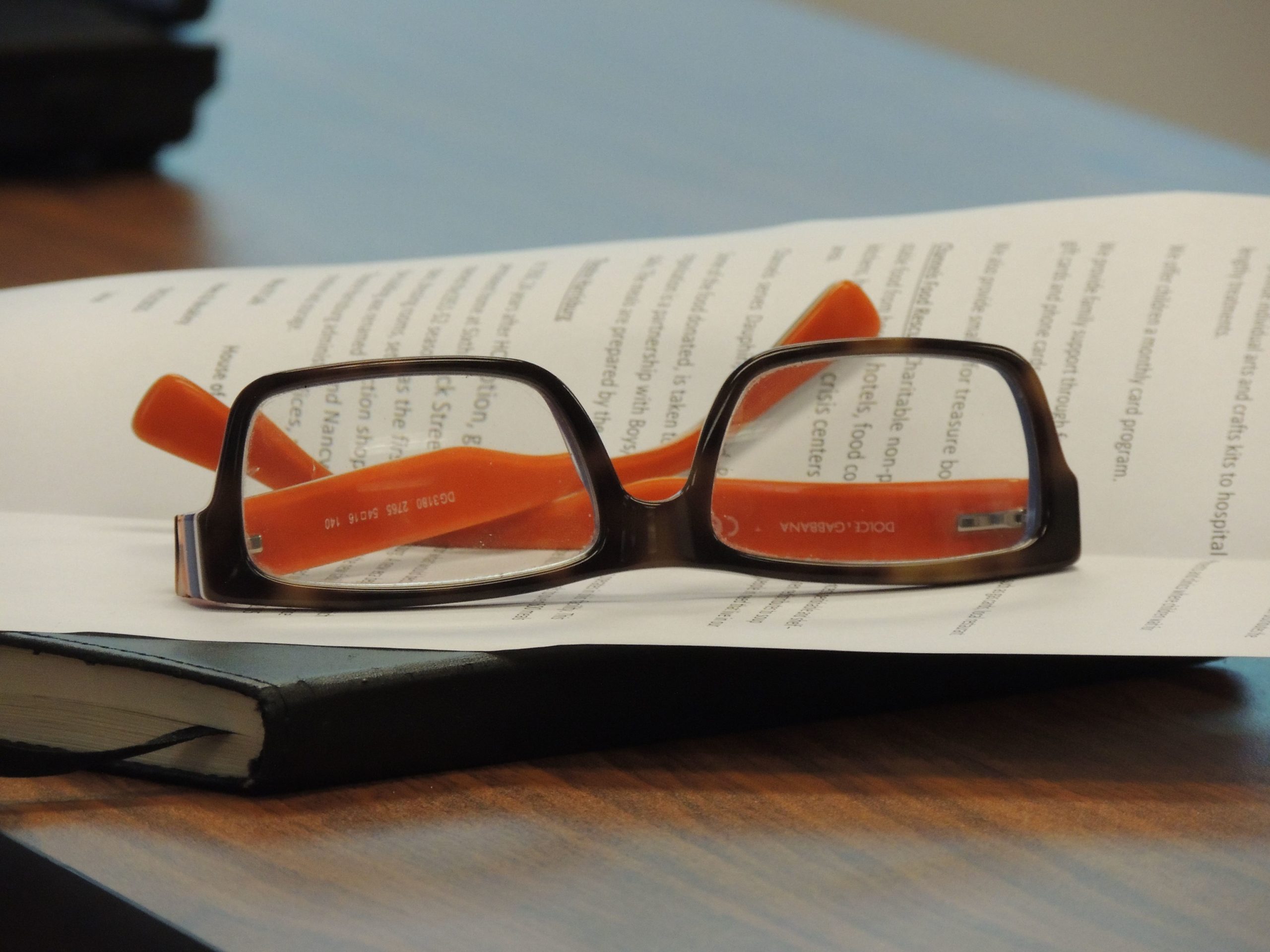
The Power of Roles
OnlineThis workshop gives participants a practical introduction to the principles of Social Role Valorization.

This workshop gives participants a practical introduction to the principles of Social Role Valorization.

Ideas that Matter is a half-day workshop aimed at offering a very brief look into some of Keystone Human Services’ foundational principles. We begin by exploring the history of disability, including how people with disabilities have been treated and thought about throughout history. We will take time to consider the threads and consequences of historical mindsets on the treatment of people today.
PASSING is for those who are interested in deepening their knowledge about the principles of Social Role Valorization. This workshop involves learning to use the PASSING assessment tool, which looks at the realities of Social Role Valorization in practice. It emphasizes the impact of services on the lives of the people being served and provides an opportunity to craft a vision of a good service and the foundation from which to design relevant and effective support, service, advocacy, and assess service quality.
Join us for two days of learning, discovery, and design, as we explore visual and inclusive processes of envisioning the future, and design ways to move forward, and create change. This course is intended to develop awareness in using Social Role Valorization as a strong foundation and using PATH and Personal Futures Planning as creative ways to imagine and plan for change. PATH is a planning process developed by Jack Pearpoint and John O'Brien, to assist people, groups, or organizations to move towards a positive future. Personal Futures Planning uses a foundation of capacity-based planning to design positive and possible futures. These tools are used by people with disabilities and their allies, including professionals, who wish to explore a different life course, and by associations of people looking to establish a vision along with a strategy to move towards it.

Mapping out a vision of a big, full, inclusive life for vulnerable people can be full of road bumps. Sometimes we don’t know people very well, sometimes people are uncertain themselves about their identity, gifts, talents and what their future could hold; and sometimes we are so lost in “human service land” that we lose sight of the typical pathways of life and all they have to offer people. But when we are stuck while developing roles, designing services or even planning a house warming party for someone, using the culturally valued analogue (CVA) can provide us some tried and true guidance to get started, by reminding us to consider “What happens for people with a valued status?”

In recent years and in many places, euthanasia laws have become increasingly permissible, quite often as they relate to people who are marginalized. Laws include broader and broader definitions of who medical assistance in dying can be applied to and eradicate more and more safeguards, all posing a serious threat to people with disabilities when making the most profound and irreversible decision a person can make. Consider this alongside the countless studies that have consistently revealed that health care providers hold negative views of people with disabilities that too frequently translates to failures to equitably protect, serve, or support disabled people and the results are devastating.
Join us on Facebook. You’ll find the latest news, photos and videos.
Join us on X (formerly Twitter). You’ll find the latest news, photos and videos.
Join us on LinkedIn. You’ll find the latest news, photos and videos.
Join us on YouTube. You’ll find the latest news, photos and videos.
Join us on Instagram. You’ll find the latest news, photos and videos.